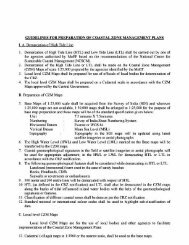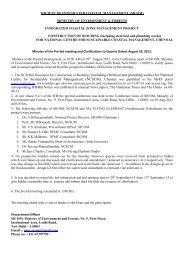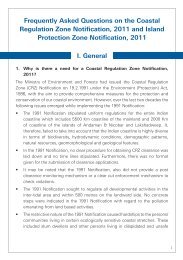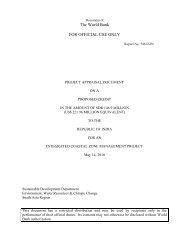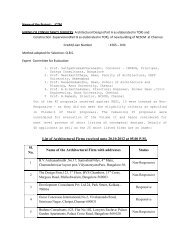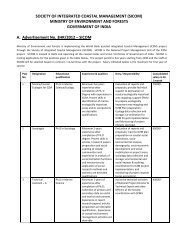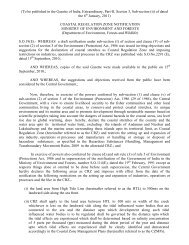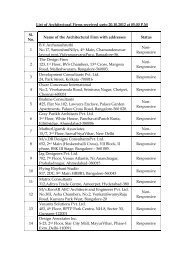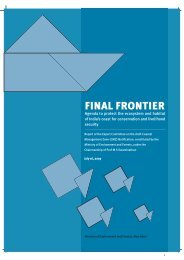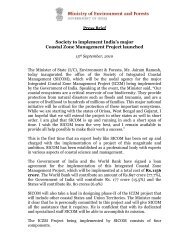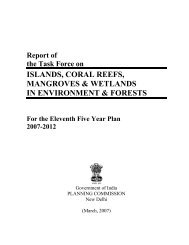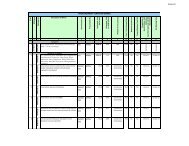NCSCM Building Bid Document - Sicom
NCSCM Building Bid Document - Sicom
NCSCM Building Bid Document - Sicom
Create successful ePaper yourself
Turn your PDF publications into a flip-book with our unique Google optimized e-Paper software.
(i)<br />
(ii)<br />
(iii)<br />
(iv)<br />
(v)<br />
“corrupt practice”7 is the offering, giving, receiving or soliciting, directly or indirectly, of anything of<br />
value to influence improperly the actions of another party;<br />
“fraudulent practice”8 is any act or omission, including a misrepresentation, that knowingly or<br />
recklessly misleads, or attempts to mislead, a party to obtain a financial or other benefit or to avoid an<br />
obligation;<br />
“collusive practice”9 is an arrangement between two or more parties designed to achieve an improper<br />
purpose, including to influence improperly the actions of another party;<br />
“coercive practice”10 is impairing or harming, or threatening to impair or harm, directly or indirectly,<br />
any party or the property of the party to influence improperly the actions of a party;<br />
“obstructive practice” is<br />
(aa)<br />
(bb)<br />
deliberately destroying, falsifying, altering or concealing of evidence material to the investigation<br />
or making false statements to investigators in order to materially impede a Bank investigation<br />
into allegations of a corrupt, fraudulent, coercive or collusive practice; and/or threatening,<br />
harassing or intimidating any party to prevent it from disclosing its knowledge of matters relevant<br />
to the investigation or from pursuing the investigation; or<br />
acts intended to materially impede the exercise of the Bank’s inspection and audit rights<br />
provided for under Sub-Clause 22.2.<br />
7 “another party” refers to a public official acting in relation to the procurement process or contract execution].<br />
In this context, “public official” includes World Bank staff and employees of other organizations taking or reviewing<br />
procurement decisions.<br />
8 a “party” refers to a public official; the terms “benefit” and “obligation” relate to the procurement process or<br />
contract execution; and the “act or omission” is intended to influence the procurement process or contract execution.<br />
9 “parties” refers to participants in the procurement process (including public officials) attempting to establish<br />
bid prices at artificial, non competitive levels.<br />
10 a “party” refers to a participant in the procurement process or contract execution.<br />
55<br />
NCB.CW/W-2



